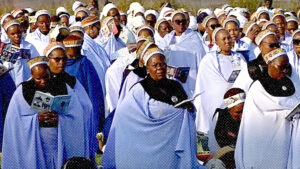In my travels and conversations in the Western world I have seen the excitement in a growing number of families about adopting African children. However, what I have often found rather surprising is the lack of knowledge and appreciation of the African extended family system as it relates to Orphans and Adoption.
Whereas to the Western mind, an orphan, having lost both father and mother, is destined to either be adopted or spend the rest of his or her childhood days in an orphanage, to an African mind, the child still has many fathers and mothers, and consequently many homes to live in.
Please allow me to explain.
In Africa, south of the Sahara, we have a system that is foreign to the social life of people in the West. It is popularly known as the extended family system. It goes something like this. My biological father’s brothers are also my fathers and my biological mother’s sisters are also my mothers. If your mind has processed that, let me add a little more. The wives of my biological father’s brothers are my mothers and the husbands of my biological mother’s sisters are my fathers.
My father’s sisters are not my mothers, they are my aunts, and my mother’s brothers are not my fathers, but my uncles. Similarly, their children are not my brothers and sisters, they are my cousins. And when we come to the next generation, their children are not my children, but my nephews and nieces. They stand in a different relationship with me compared to the grandchildren of my father’s brothers and my mother’s sisters. Unless you understand it that way, you have not begun to understand the African extended family system.
Let us try a little mathematics. If my late dad had three brothers and my late mom had three sisters, and all of these are married and alive, then I have six fathers and six mothers still alive and well on the planet.
Often we speak in terms of ba tata mwaiche (younger father) and ba tata mukalamba (older father) when referring to the younger and older brothers of our fathers and ba mayo mwaiche (younger mother) and ba mayo mukalamba (older mother) when referring to the younger and older sisters of our mothers.
However, it is not uncommon, especially when one is talking to a foreigner from the West for us to simply say in English “my father” when in the strictest sense we are referring to an uncle. Hence, there is the often-told joke of an employee who gets leave from work to attend the funeral of his father and then asks for permission some six months later to attend yet another funeral of his father. The Western employer gets furious and says, “How dare you think you can cheat me. It was only six months ago when I gave you permission to go and bury your father. Do you think that I have already forgotten that? How many fathers have you got?” Well, of course, the employer is shocked out of his socks when the man actually begins to count them.
Let me go one step further. The extended family grows even bigger when one begins to count the number of siblings. Let us suppose that my dad and mom have three children, and each of my dad’s three brothers has three children and each of my mom’s sisters has three children (I am keeping to “three” to make the mathematics simpler). Then I have twenty brothers and sisters!
If I were to take it even further and bring it to the level of the children of my siblings, then the mathematics spins out of control. It grows exponentially. If I had three children and each of my “brothers” and “sisters” had three children, then apart from my own biological children, I have another sixty children. Yes, sixty!
Okay that is enough about numbers and mathematics. Let us move on to the implications of all this. To us as Africans, this is more than just a change of words. It is not cut and paste. It is real. Although my biological children have a special place in my heart and home, these sixty children really have a sense of belonging to me. They feel they have a stake in my home. After all, I am their father and my wife is their mother.
This is especially the case when their backs are against the wall—either due to poverty in the immediate family or due to the loss of a parent in death. I once introduced the daughter of my mother’s sister as a cousin to a friend of mine and almost paid for it dearly afterwards. She felt that I was disowning her or, at best, distancing myself from her—and she let me know it in the strongest terms. I tried to explain to her that the individual I was introducing her to was a close family friend and he knew very well that I only had two biological sisters. Her response was, “But he is an African. He should know you have more sisters than that.” And she was right.
The best way for a Western mind to understand this “sense of belonging” is by drawing a parallel between the state system and the extended family system. The state taxes the rich in order—among other things—to take care of the poor. The richer you are the more tax you pay. Thus an American who does not have a job EXPECTS the state to start putting money into his account to sustain him. They call it welfare. The aim is that, by the rich helping the poor, none of its citizens will be too poor to survive.
Now, you have to remember that the state system is a very recent phenomenon in Africa. We are still struggling to come to terms with it. We lived in families—the nuclear, the extended, the clan, the tribe, etc. So, in the extended family, the wealthier nuclear families share their wealth with the poorer nuclear families, just the way in which in the state system the richer are taxed to support the poorer. Again, the aim is to ensure that those who are poor are not too poor to survive. They have richer “fathers” and “mothers” to turn to when their backs are against the wall.
This explains why our middle and higher income families are hardly ever nuclear families. In my church, there is hardly a home where you have parents with only their biological children. Partly due to the AIDS scourge many of us have lost siblings and so have taken in their children. After all, we are their fathers and their mothers. Apart from those who are in our homes, we are also supporting many others with school and college fees while they are living in lower income homes. In this way, the rich do not have too much and the poor do not have too little.
A friend of mine once told me of a time when he worked as a CEO of a bank and a friend from the USA visited him. When the children started coming out of their bedrooms to greet the visitor, they just kept on coming. He had about twenty-four of them in his home on that occasion. (To manage all of them, he had put most of them in boarding school. However his visitor came when it was school holidays). When his visitor was told what I have just explained above, he called everyone back and took a picture of the “family” with twenty four children. He then went back to the USA and started supporting some of these “orphans” by paying for their school fees. By the time I was being told this story, most of them had finished school and college and were now supporting their younger siblings. He was grateful to his friend.
My mother died when I was nine years old. A year later, her immediate elder sister came and got my two sisters and me, and educated us until we went to university. We found eight siblings in that home and so, together, we were now eleven. At least we were in a home with “father” and “mother”. During school holidays, they would send us to visit our other “fathers” and “mothers”. We later learnt that some of them helped with our school fees. By the time we returned to dad’s home, during our university days, we were aware that we had many “fathers”, “mothers”, “brothers”, and “sisters”. We had been taken care of during the turbulent early teenage years in a way that a single parent would have never managed.
So, I am a product of the African extended family system and I am now a benefactor of that system. There are accountants, engineers, hoteliers, lawyers, mechanics, etc, who have graduated from our home and from our domestic coffers. My greatest joy, however, has been to see some of these converted to Christ while in our home—and now living to God’s glory!
The problem with coming to Africa and adopting one “orphan” from the extended family system is that your help is limited to one person only and not the rest of his family. The child changes his name and his family, and grows up in a context of the state system. His sense of connection with the wider family is lost and so even if he was to come and visit later in life, as was the case with Obama on his last famous visit to Kenya, his mind is already moulded by the state system and the extended family system is very foreign to him. When the many children of his poorer “siblings” (in the African extended family sense, which is exponentially higher than the Western concept) come to him to ask for help, he feels as if these Africans really love to beg. It reminds him of the many lazy drunkards back home in the USA who do nothing but wait for the cheque from the state each week or month.
What he fails to realize is that in the extended family system we know one another. Hence, such exploitation hardly lasts. You give a guy a chance to better himself by helping him to get on his feet. Once it becomes clear he is just a lazy glutton wanting free food, you show him the door. Of course, human beings are fallen creatures everywhere and so they will exploit any of God’s gifts to mankind out of his most gracious common grace. The African extended family system is no exception.
Please do not get me wrong. I am not against adoption and orphanages, per se. My church ministers to two orphanages (they hate to be called orphanages) and is helping to start one, I sit on the board of one of them, and I regularly minister to a couple running yet another one. They have many advantages. For instance, a child that is adopted by a Christian family out of a non-Christian context is going to be loved and exposed to the gospel.
Also, when a church-run orphanage takes a child from the streets and raises that child, there will be a similar exposure to the gospel. This exposure has led many who would otherwise have never been regularly and lovingly exposed to the gospel to see it in action. Due to this, many have been converted to Christ and, hence, live God-centred lives. Can anything be better that the salvation of a person’s soul? It is worth all the trouble in the world!
So, I think there is a place for both adoption and orphanages. However, knowing the extended family system suggests A DIFFERENT EMPHASIS in caring for African orphans. My Western friends should consider empowering homes where younger or older “fathers” and younger or older “mothers” are looking after children of their deceased siblings as a viable way to care for orphans. It may be totally foreign to the Western mind, but it is the most natural way for us as Africans to look after orphans. It is not either-or but both-and. (Hence, the title of this blog is not “Adoption, orphanages OR the African Extended Family system”).
So, if you are able to adopt an African child, by all means do so. For that child, it is a dream come true—from the squalor to the States! But, while adoptions continue to grow exponentially in number and orphanages are opening up with support from the West, what are you doing to support what is more natural to us?
One way of empowering such homes would be to help with scholarships that would enable these children to go to good (Christian) schools, colleges and universities (like the African Christian University), while being brought up in the context of the extended family system. That way, instead of only one child benefitting as he is adopted and taken away by a foreign family, his siblings—in the extended family sense—will also benefit from his education and new found Christian faith since he is still among them. So, without declaring a moratorium on adoptions and orphanages, supporting the extended family system in Africa should be emphasised more and will make the dollar go much, much further.
And, by the way, it is through the extended family system that we look after our aging parents too. We never send them to old people’s homes. In that sense, I am sure we are closer to Bible times. Paul urged Timothy, saying:
“Honour widows who are truly widows. But if a widow has children or grandchildren, let them first learn to show godliness to their own household and to make some return to their parents, for this is pleasing in the sight of God… But if anyone does not provide for his relatives, and especially for members of his household, he has denied the faith and is worse than an unbeliever… If any believing woman has relatives who are widows, let her care for them. Let the church not be burdened, so that it may care for those who are really widows” (1 Timothy 5:3-4,8,16).














